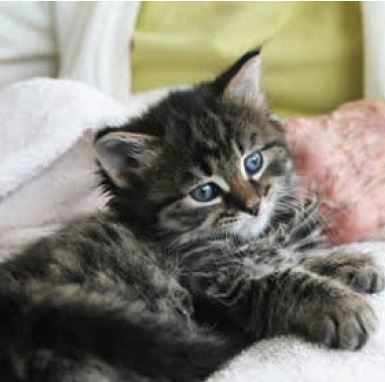 When a donor passes away, what will happen to their “best friend?”
When a donor passes away, what will happen to their “best friend?”
When making plans for the future financial well-being of family and other loved ones, people often consider a number of obvious beneficiaries: spouses, partners, immediate family, close friends and employees and their charitable interests. However, a very important member of many American families is often left off this list: the family pet that may be left behind.
Pets are very dear to many and have a special place in our hearts, so it is important to make sure they are provided for as part of estate plans. Your donors may feel the same way but may be uncertain how to ensure continued care of their pets. Be prepared when donors ask how their estate plans can be structured to support their animals, and eventually your mission.
Here are a series of questions your donors may consider when putting their plans in order.
Q: Do people include their pets in their estate plans?
A: Yes. The best estimates are in the range of 60 percent of U.S. households have a pet. That number appears to decrease somewhat with age. Just 10 percent had made provisions to provide for their pets in the event of their own death or debilitating illness. This percentage represents a substantial increase from previous years.
Q: Can a pet be named as a beneficiary in a will?
A: Unfortunately, no. State laws treat pets as property. Therefore, one must leave money or other assets to a caretaker who will look after the pet. It is important to name a trusted person to assume that responsibility as there is no legal obligation for the person named to use the money to care for a pet.
Q: Can a pet be left to someone in a will?
A: Because animals are property they may be bequeathed to others through a will. It is important, however, to consider making sure that adequate resources are available to care for the pet.
Q: Is there another way to make sure a pet is cared for?
A: One can provide for a pet through what is known as a “pet trust.” Much like a trust established for the care of a minor child, the trustee named is legally obligated to act in the animal’s best interest and ensure that desires for a pet’s future care are met. It’s also a good idea to name an alternate in case the original caretaker is unable to serve.
Q: What are some of the things having a pet trust will ensure?
A: The assets left in a pet trust can be used for anything related to the care and well-being of an animal. From food and treats to veterinary bills, a pet trust will ensure that the pet is taken care of in the ways specified.
Q: How can one make sure a pet is properly taken care of if the owner is not able to give directions personally?
A: They can create a “Pet Care Plan.” This will ensure that everything from the pet’s medical history to the specific type of food they require will be noted. This plan can include important information such as vet and pet sitter’s information, groomers, medical history and other service providers. It can also include a pet’s habits, likes and dislikes. Anything that one believes will ensure their pets receive the right care and attention should be included.
 Q: Are pet trusts the same in all states?
Q: Are pet trusts the same in all states?
A: No. While the majority of states permit some form of a pet trust, details and limitations do vary. It is best to check with an attorney about local laws.
Q: What happens to the trust in the event of the pet’s death?
A: Anything that remains in a pet trust could be used to fulfill other wishes at that time, such as benefitting a favorite charity or passing to family members or other beneficiaries.
Learn about one of our clients – Morris Animal Foundation – who helps animals in our Client Corner.
Pets give so much joy and love, and for many they are valued members of the family. It is important to these donors that they ensure pets are taken care of when they can no longer do so themselves. Helping donors learn how to plan for their pets’ futures can give them peace of mind and comfort that is priceless. Meet one of our clients with a mission to help animals: Morris Animal Foundation. ■
Additional Reading.
Check out some of these articles for more information about pet ownership and your donors:
The Denver Post talks about baby boomers aging and potential hazards with pets.
More statistics on pet ownership.
Pet ownership info from Humane Society.
But be careful on taking the statistic info as irrefutable fact: Why some surveys on pet ownership show conflicting data.

